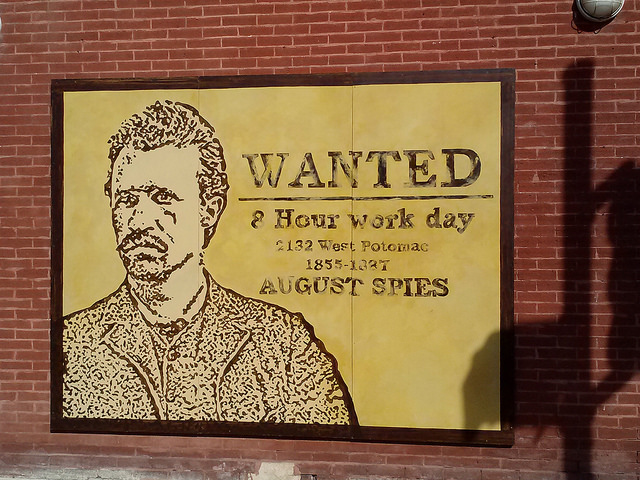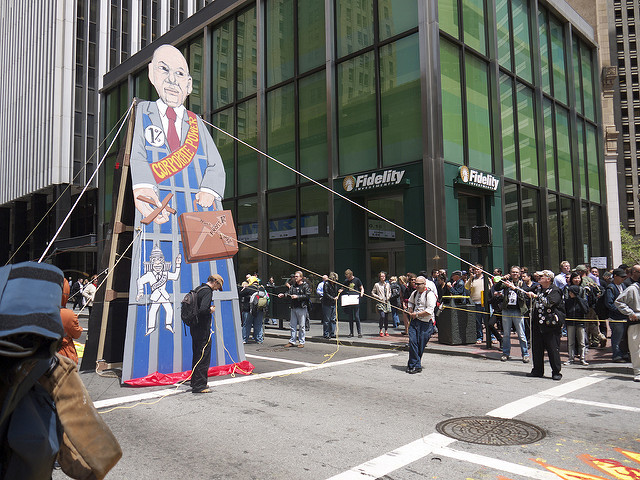International Workers’ Day Posted by sasha on May 2, 2016 in Uncategorized
Countries all over the world celebrate May 1st as International Workers’ Day. Also known as May Day or Labor Day in some countries, this is a day to honor the working class and the struggle for workers’ rights. The day was chosen to commemorate the Haymarket Affair, which took place in Chicago on May 4, 1886. Even though this event happened in the US, Labor Day is not celebrated on May 1st but rather the first Monday in September. Let’s learn a little bit about the history of this holiday and why it’s not celebrated on May 1st in the US.
The Haymarket Affair
![By Harper's Weekly (http://www.chicagohs.org/hadc/visuals/59V0460v.jpg) [Public domain], via Wikimedia Commons](https://blogs.transparent.com/english/wp-content/uploads/sites/31/2016/05/HaymarketRiot-Harpers.jpg)
By Harper’s Weekly (http://www.chicagohs.org/hadc/visuals/59V0460v.jpg) [Public domain], via Wikimedia Commons
After the Civil War, industrial production increased greatly in the US. The city of Chicago was a major industrial center. While this was good for business, it wasn’t so great for the workers. People worked around ten hours a day for six days a week. Soon the city also became a center for organized labor, with workers getting together to demand better conditions. Their main goal was to achieve an 8-hour workday. The slogan of the working class came to be, “Eight hours’ labor, eight hours’ recreation, eight hours’ rest.” In late 1884 at a convention of the Federation of Organized Trades and Labor Unions, May 1, 1886 was set as the date when the 8-hour workday would become standard.
On that day, thousands of workers across the country went on strike and held rallies. “Eight-hour day with no cut in pay!” could be heard in cities like Detroit, New York, and of course Chicago. Two days later, violence broke out between strikers and police at the McCormick Reaper plant. A few of the strikers were killed and many more were wounded.
The next day, about 3,000 people gathered for a rally in Haymarket Square. Labor leaders such as August Spies, Albert Parsons, and Samuel Fielden addressed the crowd. Although many expected trouble, it was a peaceful event. The Mayor even went home early as he believed everything was calm and orderly. When the last speaker finished, however, a large group of police marched on the rally and ordered the crowd to disperse. A home-made bomb was thrown into the path of police, who responded with gunfire. In the end, seven police officers and 4-8 civilians were killed, while many more were wounded. Learn more about the Haymaker Affair in this video series from PBS:
The Aftermath
To this day, no one knows who threw the bomb in Haymarket Square. Police suspected and arrested eight anarchists, who were tried and convicted. Four of them were hanged, and one committed suicide in jail. In the moments before his death, Spies famously said,”The time will come when our silence will be more powerful than the voices you strangle today.”
Two years after the Haymarket Affair, the American Federation of Labor set May 1, 1890 as the day when American workers should work no more than 8-hour days. At a meeting of the Second International in 1889, it was declared that May 1st would be an international holiday for laborers. The 8-hour workday was slow to be adopted, as there was much resistance from the business community. In 1914, Ford doubled workers’ pay and cut the workday to just eight hours. These changes were not popular with rival companies, but after Ford’s productivity and profits soared, most followed suit. In 1916, the Adamson Act established an 8-hour day for railroad workers with additional pay for overtime. Finally, the Fair Labor Standards Act established the 40-hour workweek, a national minimum wage, and prohibited child labor in 1938.
Why Doesn’t the US Celebrate May Day?
After another large strike in 1894, President Grover Cleveland made Labor Day a national holiday in the US, but he did so on the first Monday of September and not May 1st. He and many others believed that commemorating the Haymarket Affair would give support to communism and other radical causes. Many years later, President Dwight Eisenhower signed a law making May 1st Loyalty Day in response to a “red scare” – the fear of the rise of communism. The day has been recognized with an official proclamation from every sitting president since its adoption in 1958.
Although it’s not celebrated as an official holiday, May 1st still remains an important day to many. In 2006, millions of people participated in protests across the country for immigrants’ rights. The Occupy movement also chose May 1st as a day for protests and a general strike. Thousands of people also gathered in Los Angeles yesterday to commemorate the day, including members of the labor movement, immigrant rights groups and Black Lives Matter activists

Build vocabulary, practice pronunciation, and more with Transparent Language Online. Available anytime, anywhere, on any device.
About the Author: sasha
Sasha is an English teacher, writer, photographer, and videographer from the great state of Michigan. Upon graduating from Michigan State University, he moved to China and spent 5+ years living, working, studying, and traveling there. He also studied Indonesian Language & Culture in Bali for a year. He and his wife run the travel blog Grateful Gypsies, and they're currently trying the digital nomad lifestyle across Latin America.





